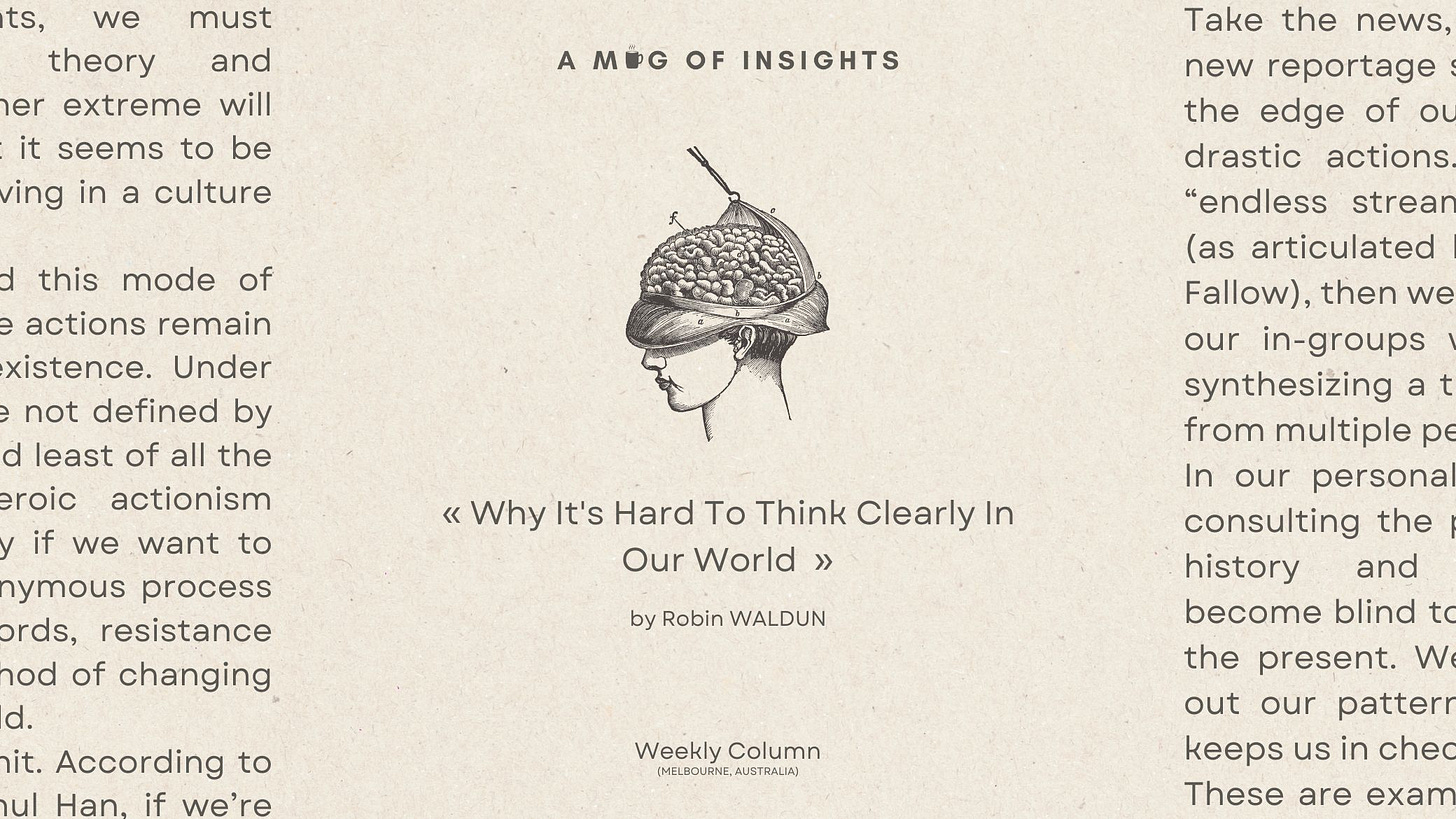Why It's Hard To Think Clearly In Our World
To think or to act? That is the question.
A Mug of Insights is 100% a reader-supported newsletter. Since you’re here already, consider signing up for a paid subscription for $5/month which will give you access to the full archive (posts are automatically archived after two months) and all of my extended essays with further reading lists. And on average, subscribers will get 50% more weekly post…
Keep reading with a 7-day free trial
Subscribe to A Mug of Insights to keep reading this post and get 7 days of free access to the full post archives.



